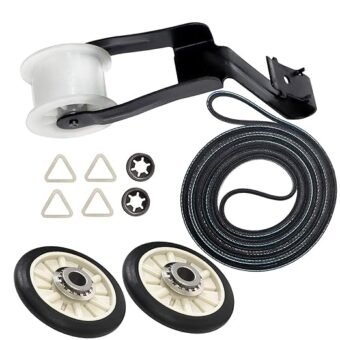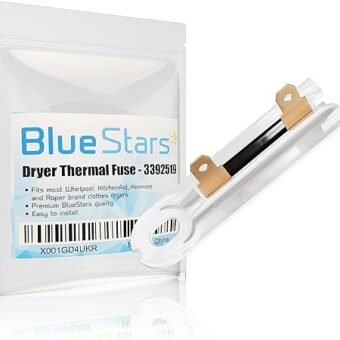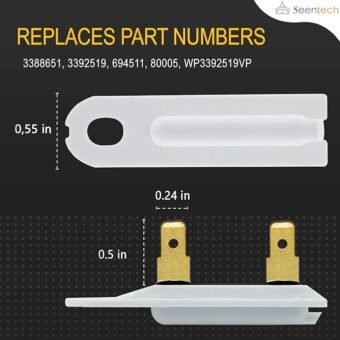Why You Should Consider Replacing Common Household Items
The importance of replacing everyday household items with eco-friendly and cost-effective alternatives cannot be overstated. The pervasive use of single-use plastics and non-biodegradable materials has led to significant environmental challenges, as evidenced by numerous studies. According to a 2021 report by the Environmental Protection Agency (EPA), the United States alone generated approximately 36 million tons of plastic waste, only 9% of which was recycled. Such staggering figures elucidate the pressing need for change, as much of this waste ends up in landfills or polluting the oceans. The Great Pacific Garbage Patch, an enormous collection of marine debris, exemplifies the severe impact of plastic waste on marine ecosystems, leading to detrimental effects on wildlife and ocean health.
Beyond environmental concerns, there are compelling financial reasons to consider eco-friendly alternatives. While the initial investment in reusable or longer-lasting items may be higher, the cumulative savings over time are substantial. For example, switching from single-use plastic bottles to a durable, reusable water bottle can save an average household hundreds of dollars annually. Similarly, opting for cloth napkins instead of disposable paper ones can further reduce recurring expenses. This shift not only benefits the wallet but also reduces the frequency of purchasing replacements, promoting a more sustainable consumption pattern.
Moreover, making environmentally conscious choices often translates to healthier living environments. Many traditional household items contain harmful chemicals and toxins that can negatively impact indoor air quality and personal health. Replacing them with eco-friendly alternatives can significantly diminish exposure to these harmful substances. For instance, biodegradable cleaning products are not only better for the environment but also reduce the presence of harsh chemicals in the home, contributing to better respiratory health and reducing the risk of allergic reactions.
Overall, the move towards eco-friendly household replacements presents a dual benefit: aiding environmental conservation while also offering economic and health advantages. This dual impact underscores the pertinence of adopting sustainable practices in our daily lives, ultimately fostering a harmonious relationship with our planet and improving quality of life.
Top Household Items to Replace and Their Eco-friendly Alternatives
As awareness of environmental sustainability grows, many households are making the transition to eco-friendly and cost-effective alternatives for everyday items. This shift not only benefits the environment but can also lead to significant long-term savings. Below is a comprehensive list of common household items and their more sustainable counterparts.
1. Plastic Bags: Instead of using disposable plastic bags, opt for reusable cloth bags. These durable bags, often made from organic cotton or recycled materials, can be used multiple times, reducing plastic waste significantly. Available at most grocery stores and online, they require simple cleaning, such as a gentle machine wash.
2. Single-use Water Bottles: Replace single-use plastic water bottles with stainless steel water bottles. Stainless steel variants keep beverages cold or hot for extended periods and are far more durable. Although the initial cost is higher, the longevity and reusability make them a cost-effective solution in the long run. Many brands offer various sizes and designs to suit personal preferences.
3. Paper Towels: Bamboo paper towels or microfiber cloths are excellent alternatives to conventional paper towels. Bamboo paper towels are highly absorbent, reusable after washing, and biodegradable. Microfiber cloths can be washed and reused numerous times, making them an economical and eco-friendly choice. Both options can be found in stores and online retailers.
4. Plastic Food Storage Containers: Instead of relying on plastic containers, consider switching to glass food storage containers. Glass is non-toxic, doesn’t absorb odors, and is safe for microwave and dishwasher use. While the upfront cost may be higher, the durability and health benefits make it a worthwhile investment.
5. Chemical Cleaning Products: Homemade or eco-friendly cleaning supplies made from natural ingredients such as vinegar, baking soda, and essential oils can replace chemical-laden products. These alternatives are not only better for the environment but also safer for household members, including pets. Many eco-friendly cleaning products are available in stores, or you can create your own with simple online recipes.
Transitioning to these eco-friendly alternatives can lead to a significant reduction in household waste and chemical exposure, contributing to a healthier living environment and planet. Most of these items can be found in local stores or through online vendors, ensuring accessibility and convenience for anyone looking to make a positive change.





